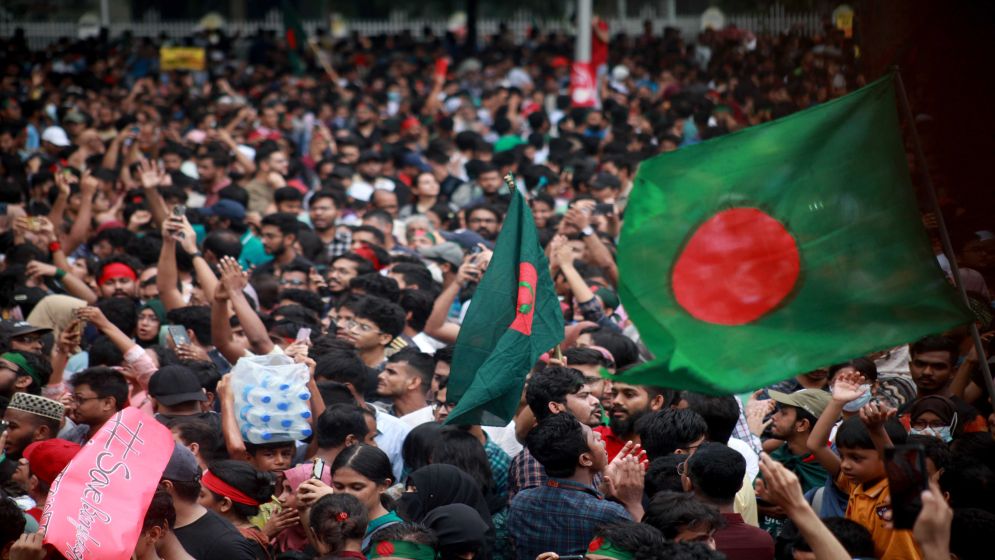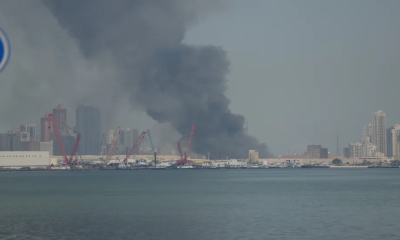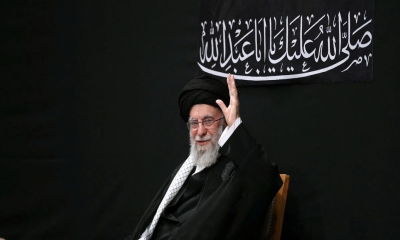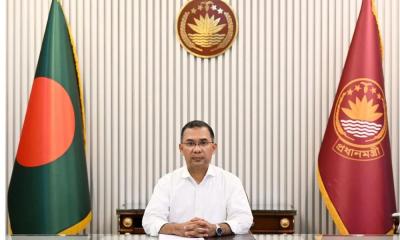Students and citizens involved in the recent Anti-Discrimination Movement, which led to a historic mass uprising earlier this year, are now gearing up to form a new political party.
According to those involved, the party is expected to be officially launched within the next two months, with grassroots-level organization already underway across various police station areas.
Despite this political move, spokespeople for the Anti-Discrimination Student Movement and the Jatiya Nagorik Committee have made it clear that both groups will remain non-political organizations.
The new party will operate under a different name, and individuals from these forums will be free to join if they wish.
Political figures, while largely welcoming the formation of a new party, have raised concerns about possible government influence over its creation.
Leaders from the Bangladesh Nationalist Party (BNP) and Jatiya Party worry that if the new party is formed under government support, it could compromise the neutrality of the interim government, particularly in the run-up to upcoming elections.
How the New Party is Taking Shape
Earlier this year, the Anti-Discrimination Student Movement led protests and demonstrations throughout July and August, demanding reforms and justice.
The movement contributed to the fall of the Sheikh Hasina government on August 5, paving the way for an interim government led by Dr. Muhammad Yunus.
Three of the movement`s key leaders now hold advisory positions in this interim administration.
Following the protests, the movement was restructured, and another group, the Jatiya Nagorik Committee, was formed, consisting of students and citizens who took part in the uprising.
On Victory Day, December 16, Nasiruddin Patwary, the convener of the committee, publicly announced that a new political party will be launched within the next two months.
“We are organizing the strength and energy that fueled the uprising. So far, we have set up 100 police station-level committees, and we plan to finish setting up all the committees in the next 15 to 20 days.
After that, it’s up to the students to decide how fast we can move forward with forming the party," Nasiruddin said.
He emphasized that the Anti-Discrimination Student Movement and the Jatiya Nagorik Committee would stay as non-political bodies.
The new political party will be born from the students` own initiative, but anyone from the two groups who wants to join will be free to do so.
"We have members from revolutionary, civil society, and political backgrounds.
Those who feel ready to get involved in politics can join the new party if it aligns with their values," Nasiruddin explained.
Progress on the New Party
Abdul Hannan Masud, a key figure in the Anti-Discrimination Student Movement, confirmed that preparations for the new party are advancing rapidly, and the launch is expected within two months.
Key tasks, such as drafting the party’s constitution and manifesto, are already in progress.
Masud mentioned that discussions about the party’s name are still ongoing, and leadership roles are being finalized.
He reiterated that this new political party will stand apart from the Anti-Discrimination Student Movement and the Jatiya Nagorik Committee, both of which will continue as non-political entities.
Reactions from Political Circles
The prospect of a new political party emerging from the student movement has sparked widespread discussion.
Many political leaders have voiced concerns that if the new party is formed with backing from the interim government, it could call the government’s neutrality into question, particularly as elections approach.
Jatiya Party`s Additional Secretary General, Barrister Shameem Haider Patwary, noted that the movement had led a revolution, and those involved have the right to either form a new party or join an existing one.
However, he also warned, "If this new party is formed using resources or support from the interim government, it could damage the government`s impartiality and invite criticism."
BNP Vice Chairman Asaduzzaman Ripon shared a similar sentiment, emphasizing that while anyone in Bangladesh has the right to form a political party, any form of government backing would raise ethical concerns.
"It would be improper for the government to provide direct or indirect support to any party. That would undermine the government’s credibility," he said.
When asked whether the formation of this new party with state support would undermine future elections, Ripon added,
"If the government is facilitating the creation of a new party, fair elections cannot take place under this regime. A neutral, non-partisan caretaker government will be necessary."
Denials of Government Involvement
Nasiruddin Patwary has strongly denied that the new party is being formed with government support.
He said, “The head of the interim government, Dr. Yunus, has no interest in forming a political party, and neither do the advisers. These rumors are being spread to create unnecessary controversy.”
Similarly, Abdul Hannan Masud of the Anti-Discrimination Student Movement stated that neither his movement nor the Jatiya Nagorik Committee had any ties to the interim government.
He added that the idea of forming a party with government backing was simply not true. “If the government had supported us, they would have met all our demands by now, which has not happened,” Masud pointed out.
Elections and Justice Before Voting
As the new political party takes shape, its leaders have indicated that they will push for quick elections.
However, Nasiruddin and Masud stressed the need for key reforms and justice for victims of the violence during the uprising before elections can proceed.
“We want to see Bangladesh transition back to a democratic process as soon as possible,” Nasiruddin stated.
“But we cannot have elections without justice for the 2,000 people who were killed and the 50,000 who lost their eyes and limbs during the uprising. We didn’t get justice in 1971 or 1990, and we can’t allow the same mistakes in 2024.”
Masud added that while the party would demand prompt elections, reforms are essential to ensure that no one can ever again seize power and undermine democracy in Bangladesh.













-20260304091720.webp)






-20260303080739.webp)








-20260225072312.webp)





-20260228064648.jpg)
